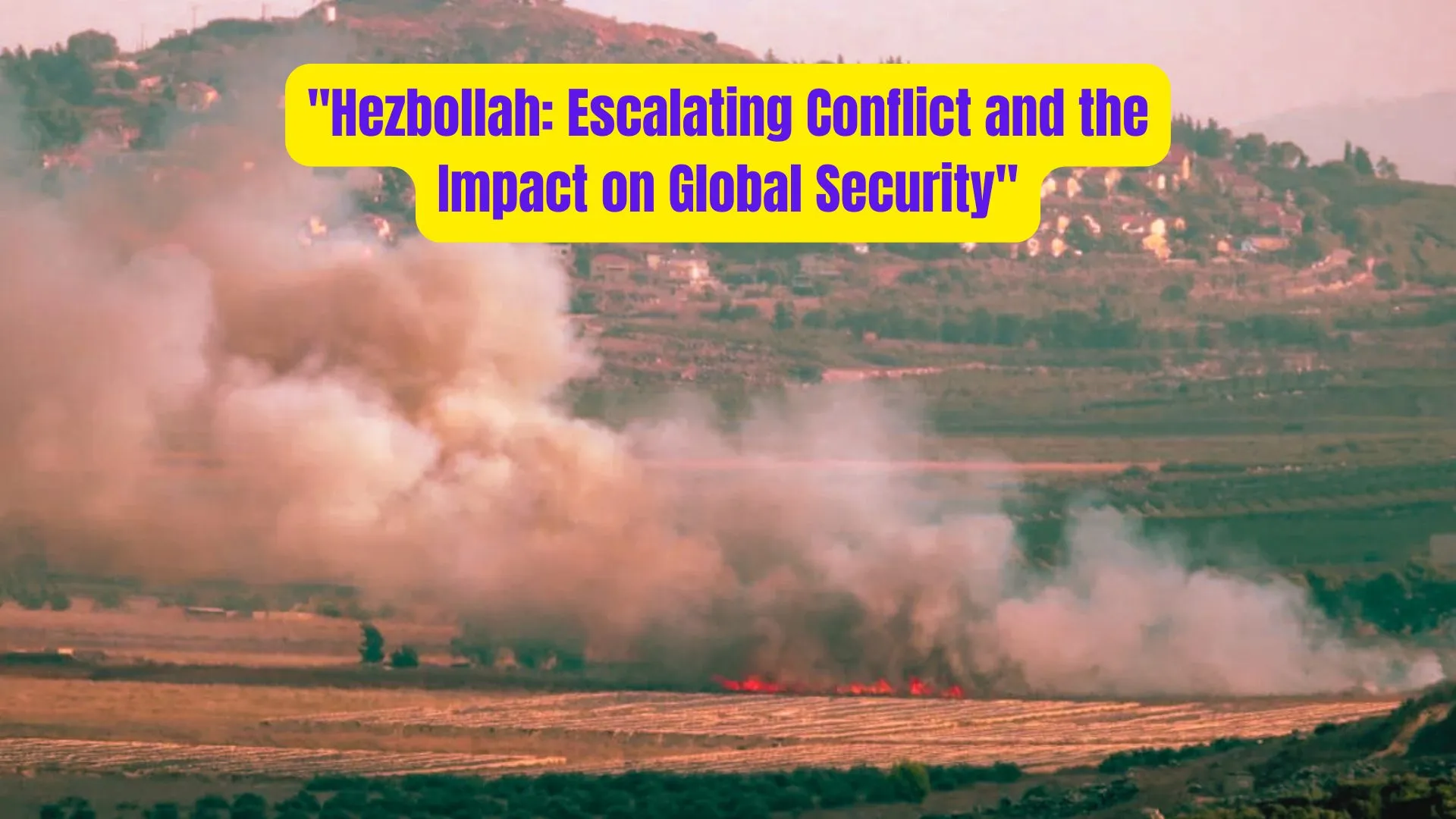“Hezbollah: Escalating Conflict and the Impact on Global Security”

In recent years, Hezbollah has become a significant player in the geopolitical dynamics of the Middle East. From its origins as a militant group to its transformation into a formidable political force in Lebanon, Hezbollah’s impact has reverberated across borders, particularly affecting Israel and its allies. The recent incident involving exploding pagers in Lebanon has highlighted a potential security breach within the group, causing severe disruptions and raising questions about internal vulnerabilities.
Understanding Hezbollah’s Role in Lebanon
Hezbollah, a Shia Islamist political and militant group, has long held sway in Lebanese politics and military affairs. Backed by Iran, it plays a crucial role in shaping Lebanon’s foreign policy, particularly regarding Israel. Since its formation in the early 1980s, Hezbollah has grown to become a dominant force in both military and political landscapes, boasting significant regional influence.
The Recent Incident: Exploding Pagers in Lebanon
A massive security breach within Hezbollah recently led to the explosion of several pagers carried by Hezbollah fighters in Lebanon. This breach resulted in injuries to hundreds of militants, with at least three fatalities reported. While Israel has not confirmed any involvement, suspicions about its role in this attack have surged.
The incident occurred as Hezbollah continues its confrontation with Israel and other neighboring nations. Pagers, which are typically used for communication among Hezbollah’s military units, are now under scrutiny as a point of vulnerability. The group’s reliance on such communication devices may have contributed to the biggest security breach it has experienced in recent times.
Israel-Hezbollah Tensions: A Constant Source of Conflict
The relationship between Israel and Hezbollah has been fraught with violence and tension for decades. Since the 2006 Lebanon War, periodic skirmishes have erupted, keeping the region in a state of unrest. The group’s rocket attacks, tunnel building, and political alliances continue to pose a serious threat to Israel’s national security. Despite several ceasefires, the conflict remains unresolved, with both sides preparing for potential escalations.
In this context, the exploding pagers incident can be seen as part of a broader conflict, one that has shifted from direct military confrontations to cyber and intelligence warfare. This shift emphasizes the strategic importance of communication and the risks posed by outdated or compromised technology.
How the Incident Impacts Hezbollah’s Image
Internally, this breach is a significant blow to Hezbollah’s reputation as a well-organized and technologically advanced group. The ability of an external actor, potentially Israel, to infiltrate its communications infrastructure raises concerns about the group’s vulnerability. Hezbollah’s leadership has long prided itself on its security measures and organizational efficiency, so this incident undermines those claims.
Publicly, this incident may damage Hezbollah’s standing in Lebanon, where the group already faces growing dissent due to its involvement in regional conflicts, the ongoing economic crisis, and internal political divisions. Hezbollah’s continued support from Iran, despite these setbacks, might help sustain its power, but trust within its own ranks and among its supporters could wane after this devastating attack.
Exploding Pagers: A New Tactic in Cyber Warfare?
The use of exploding pagers represents a possible shift towards cyber and technical warfare between Israel and Hezbollah. This is not the first time advanced methods have been employed in conflicts involving Israel; past incidents include the use of cyberattacks and electronic warfare to cripple enemy systems. The fact that this incident resulted in severe injuries and fatalities underscores the effectiveness and danger of such methods in modern warfare.
The breach showcases the evolution of conflict in the region, where traditional military strategies have given way to technological warfare. The implications of this breach could inspire similar tactics in future conflicts, both in Lebanon and across the Middle East.
The Broader Implications for the Middle East
This incident is not an isolated one; it is a reflection of broader geopolitical tensions in the region. Hezbollah remains a central figure in the complex web of alliances and hostilities that define Middle Eastern politics. With growing pressure from Western powers and Israel, Hezbollah’s ability to maintain its grip on Lebanon and continue its operations against Israel is critical.
Moreover, the group’s ties to Iran have long concerned Israel and the United States. Iran’s support for Hezbollah, both militarily and financially, remains a core aspect of the regional power struggle. As sanctions continue to target Iran, and as Israel intensifies its efforts to neutralize Hezbollah’s influence, these incidents become flashpoints in a larger, more dangerous conflict.
Future Prospects for Hezbollah and Regional Stability
The exploding pagers incident raises significant questions about the future of Hezbollah and its capabilities. While the group has historically rebounded from setbacks, the current combination of economic instability in Lebanon, internal political pressures, and sustained attacks from Israel may weaken its operational effectiveness.
For Israel, this breach is a tactical victory, but it is unlikely to halt Hezbollah’s long-term plans. As both sides continue to innovate and adapt, the prospect of further escalations seems inevitable. The breach also serves as a reminder that even well-established groups like Hezbollah can face significant vulnerabilities in the digital age.
Hezbollah’s Struggles in a Changing Landscape
The exploding pagers incident underscores the evolving nature of conflict in the Middle East. With Israel and Hezbollah locked in a long-term power struggle, the future holds the potential for more technologically advanced and unconventional attacks. As Hezbollah navigates this new reality, its internal security measures will be scrutinized more than ever before.
Hezbollah’s reputation as a resilient and powerful organization has been challenged by this recent breach. The group now faces the daunting task of recovering from the internal fallout and regaining its operational integrity. As tensions remain high in the region, Hezbollah’s ability to adapt to these changes will determine its future role in the Middle East.



